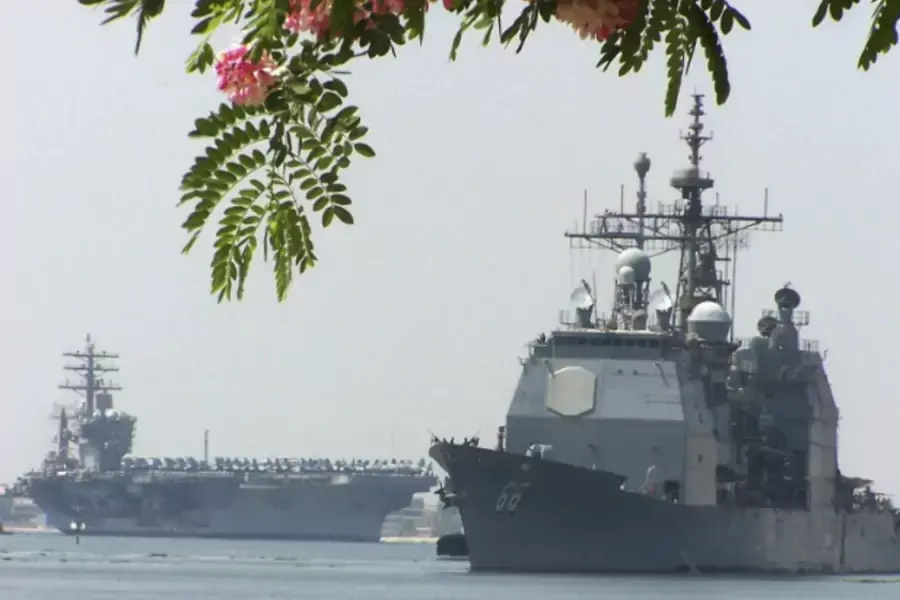You Might Have Missed: Cyber Defense, Egypt, Drone Strikes in Iraq?

More on:
CNN, "Transcript of President Obama’s Interview on ’New Day’," August 23, 2013.
What I think the American people also expect me to do as president is to think through what we do from the perspective of, what is in our long-term national interests? You know, sometimes what we’ve seen is that folks will call for immediate action, jumping into stuff, that does not turn out well, gets us mired in very difficult situations, can result in us being drawn into very expensive, difficult, costly interventions that actually breed more resentment in the region.
So, you know, we remain the one indispensable nation. There’s a reason why, when you listen to what’s happened around Egypt and Syria, that everybody asks what the U.S. is doing. It’s because the United States continues to be the one country that people expect can do more than just simply protect their borders.
But that does not mean that we have to get involved with everything immediately. We have to think through strategically what’s going to be in our long-term national interests, even as we work cooperatively internationally to do everything we can to put pressure on those who would kill innocent civilians.
John M. Doyle, “Teaming Up,” Aviation Week & Space Technology, August 19, 2013.
This year, the Pentagon has firmed up plans to skim approximately 4,000 operational and intelligence experts from the uniformed services to field the now more than 100 teams that will play both digital offense and defense against enemies seeking to attack the U.S. and its vital computer networks.
Some teams are already being fielded, although officials will not say exactly how many or where they are located. A Pentagon press officer said a number of teams are “prioritized” to be operational by the end of September. More will be added in the next few years.
In all, 13 National Mission Teams will conduct “full-spectrum cyber operations” to defend against threats to the nation and its critical infrastructure; 27 Combat Mission Teams will provide support to the nine combatant commands, “and when authorized,” will offer cyber options and capabilities to consider. Commanders then will determine how best to integrate them into contingency plans as targets are assessed and determinations made on how to best defeat or neutralize, said Air Force Lt. Col. Damien Pickart.
Letter from Gen. Martin Dempsey to Rep. Eliot Engel, Released by: U.S. House of Representative Foreign Affairs Committee, August 19, 2013.
Syria today is not about choosing between two sides but rather about choosing one among many sides. It is my belief that the side we choose must be ready to promote their interests and ours when the balance shifts in their favor. Today, they are not.
State of the Union with Candy Crowley, CNN, August 18, 2013.
Sen. John McCain: “We do have influence, but when you don’t use that influence, then you do not have that influence.”
Jim Michaels, “U.S. military needs Egypt for access to critical area,” USA Today, August 17, 2013.
During the past year, more than 2,000 U.S. military aircraft flew through Egyptian airspace, supporting missions in Afghanistan and throughout the Middle East, according to U.S. Central Command, which is responsible for the region.
About 35 to 45 U.S. 5th Fleet naval ships pass through the Suez Canal annually, including carrier strike groups, according to the Bahrain-based fleet. Egypt has allowed U.S. warships to be expedited, which often means getting to the head of a very long line of ships waiting for access to the canal.
Indira A. R. Lakshmanan, “Iraq Open to U.S. Drone Strikes on Terrorists,” Bloomberg, August 17, 2013.
Al-Qaeda terror attacks have become such a deadly epidemic in Iraq that the government in Baghdad is seeking U.S. advisers, air surveillance or even drone strikes, Iraqi Foreign Minister Hoshyar Zebari said yesterday.
“We cannot fight these increasing terrorist” threats alone, Zebari said in an interview with reporters in Washington. Zebari credited the U.S. with “vast experience” breaking up al-Qaeda cells in Iraq, and said that expertise in intelligence, analysis and targeting was lost when U.S. forces pulled out of his country in December 2011.
(3PA: In April, I argued that the Obama administration has made a good choice in deciding not to authorize drone strikes in Iraq at the previous request of Iraqi officials.)
Barbara Opall-Rome, “Israel Seeks Increase in Annual US Aid,” Defense News, August 15, 2013.
Israel is seeking a surge in future US Foreign Military Financing (FMF) grants not only to support its growing security requirements, but to offset the impact of increasingly advanced US arms sales to other countries in the volatile region.
More on:
 Online Store
Online Store